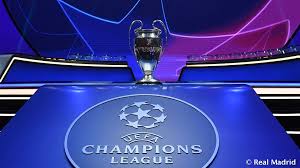
In the 1990s, in Europe, there was a footballing competition, originally, called the European Cup. The top teams from the previous year across the leagues of Europe, would play knock-out football against each other to see who was the best team in European football. However, in the 90s, this changed. An American business man called Craig Thompson went to the governing body, UEFA, which was then based on two floors of an office building in Switzerland, and proposed what became known as the Champions League. Instead of straight out knock-out football it was now leagues of 4, who would play each other twice, home and away (6 games in all). The top two teams from each league would then qualify for the knock-out stages with two teams reaching the final. This, on the surface, seemed like a good idea, however, the most obvious stumbling block had to be overcome- economics. Each and every club was interested in the economics of one entity- their self, and the Champions League was interested in one thing- itself. After much negotiation and compromise (the anecdotal definition of a compromise is that after everyone has agreed, no one is ‘happy’) it was decided.
The question then became, who would complete? Historically teams from Eastern Europe had dominated European football, but now with the wealth of the Spanish, Italian and German leagues, along with the new English Premier League, the historic clubs were deemed less likely to generate the funds desired and so the competition was created to protect the interests of the ‘big’ (rich) leagues. England, Italy and Spain, to name but three, were given 4 places each- 3 automatic and 1 going through qualifiers. It was also arranged so that teams would be seeded so that the bigger teams wouldn’t be able to play each other in the group stage, nor could teams from the same country. In other words, the odds were stacked to protect the teams who could generate the most wealth. Historically great teams such as Ajax of Amsterdam, the team which reshaped world football tactics with their notion of total football (think of how Manchester City and Barcelona play) could now win their leagues and still not qualify for the group stages of the Champions League as they had to play two qualifying rounds. The impact of Ajax on world football cannot be argued, however, due to being in a relatively small league with not much wealth compared to the likes of the Premier League, they were deemed to be of less value than the team finishing third in Germany.
With the added wealth of qualifying for the group stages, the bigger clubs became richer and moved further away from the likes of Ajax. Ajax still could qualify and do well, but then their best few players would be signed by the richer clubs and, although their youth system being second to none in producing talent, they could not compete regularly with the types of clubs who deem the Champions League a birth right, even if historically they had struggled to qualify for European football at the highest level (Barcelona).
This distortion of value led some clubs thinking that they are bigger than the game so in 2021, 12 clubs (AC Milan, Arsenal, Atletico Madrid, Chelsea FC, FC Barcelona, Inter Milan, Juventus, Liverpool FC, Manchester City, Manchester United, Real Madrid and Tottenham Hotspur- seriously, Tottenham, a team never to win the Premier League) released a press statement saying that they were founding a Super League which they would control and other teams to qualify for if they hit their criteria, criteria that would benefit historic teams over new emerging talents.
European outcry led to 9 of the teams backing out, however, 4 stayed in saying that without it they could not exist as a team any more (one example is Barcelona who despite being over 1 billion euros in debt, spent 70 million euros in the last transfer window). UEFA threatened sanctions against the teams but did not carry them through leading to reports in 2022 that ten of the teams had signed up again (no Tottenham though).
There is more to this story which we will cover another time, but what we have above is a clear example of how the true value of sport- competition- can be distorted and lost by economics.
‘till next time